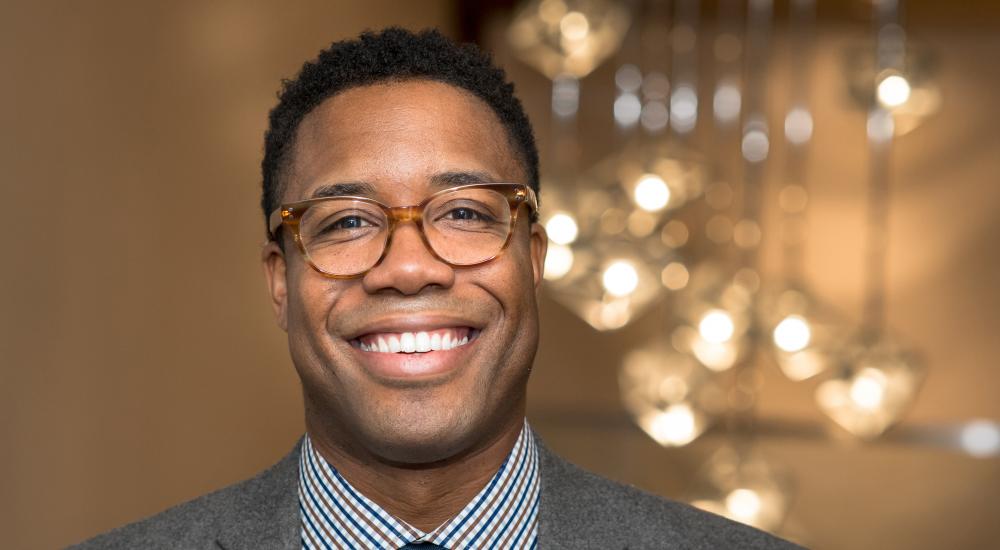ADA in Education Abroad

Applying U.S. accessibility laws, such as the Americans with Disabilities Act (ADA), to study abroad programs is a legally gray area, but two things are clear according to the law: (a) materials, orientation spaces, etc., on U.S. soil must be accessible; and (b) students cannot be rejected from programs because of their disability. Even without legal obligation, student-centered practices and ethics call for providing support to the extent possible.
Knowledge of best practices, considerations around support from institutional and third-party providers, and expectations for costs can equip international educators to successfully advise and support students with disabilities.
Build Programs for Accessibility
Assuming reasonable ADA compliance—and because some students with disabilities won’t disclose them—“we advocate for the program to be designed to accommodate everybody,” says Justin Harford, project coordinator with Mobility International USA (MIUSA)’s National Clearinghouse on Disability and Exchange.
Morgan Morris Inabinet, assistant director of global health, safety, and security at the University of South Carolina (USC), recommends that “if the program will be visiting buildings that are not accessible...[or] takes place in a rural area where physical and mental health care is not as easily accessed, make this type of information easily accessible for all students.”
All students, with or without disabilities, would benefit from having a clear notion of accessibility before departure.
Allow Students to Self-Select
Students and advisers should be partners in the selection and planning process.
“Advisers should do their best to make as much information on accessibility, disability culture, health care, insurance, and attitudes available” as possible, says Harford, while encouraging students to conduct their own research. Well-informed students will gravitate to the programs that appeal to them the most.
By encouraging students to take an active role in the planning and research stages, they can identify the best-fit program for their needs and interests.
State Truths, Not Assumptions
Advisers should openly discuss “the kinds of supports the student uses at home, the supports that they could take abroad with them, and alternatives for the ones that they cannot take with them,” Harford adds. Be honest and straightforward about what students can expect, and give facts without opinion.
It is better to say, “‘In Guatemala City, there aren’t very many wheelchair ramps, and sidewalks can be irregular at times,’ instead of, ‘It will be really hard for you to get to the study center,’” says Harford. With this objective information in hand, students can prepare for and self-manage their physical, mental, and emotional health.
Be open to possibilities and creative solutions, starting with “an attitude of ‘yes, we can do this,’” suggest the experts at MIUSA. This means that advisers should not underestimate students’ determination, as many “will keep figuring out ways to make it work,” Harford says.
Keep Open Communication
During the advising process, “It is best for both the adviser and the student to work together, to take it slow, to ask lots of questions, and to be honest,” says Joe Debiec, vice president of program operations for CISabroad (Center for International Studies).
“Student support and regulatory compliance can often go hand in hand,” says Morris Inabinet. But if they don’t, “we want to be up front with students about our regulatory obligations and help them understand why we are taking certain steps.” Transparency builds trust and can lead to students having more productive experiences.
Once a student goes abroad, MIUSA recommends staying connected throughout his or her program, as needs related to accommodations often change. Advisers can use check-ins to assess the student’s well-being, offer encouragement during challenging time, and even pick up on underlying issues that students are not voicing.
Find Partners On and Off Campus
An obvious partner is staff in the institution’s disability services office who can “help study abroad students personally, as well as provide guidance to our advisers on how to identify compliant programs and ask the right questions of our partners abroad,” says Chrissie Faupel, assistant director of study abroad advising at USC.
“Our office created promotional materials on the most accessible exchange programs, [and the] Office of Student Disability Services worked with us to develop the right questions to ask our exchange partners,” says Faupel. “We then sent out the survey and compiled the data to make a very informative flyer for our students with disabilities who may want to participate in an exchange.” Colleagues in the disability services office can help vet vendors and providers abroad.
Another key resource: study abroad alumni. Connecting students with others who have had similar life experiences helps those planning to go abroad set more realistic expectations than they might after working only with advisers, says Debiec. MIUSA also recommends that advisers connect with disability advocacy groups abroad.
Consider Third-Party Providers
A third-party provider may offer more options or support, especially if the institution focuses primarily on short-term, faculty-led, or internship programs or has a small study abroad staff, say Harford and Debiec, respectively. These providers also have wider international networks.
“It would probably be easier for one of these entities to find an ASL [American Sign Language] interpreter, a medical practitioner, or a personal assistant in a country where they have developed extensive contacts than it would be for one of their member colleges,” says Harford.
Many third-party providers, like CISabroad, CIEE, and others, have local staff who can more quickly and easily provide in-person support.
Plan for the Cost of Support Services
If an institution covers certain support services on campus, it also likely covers them abroad. Who pays for these services abroad, however, depends on institutional policy; it may fall to student disability services, study abroad, the provost, or another office, says Faupel.
USC “covered the cost of a sign language interpreter to accompany a student on a short-term program,” says Faupel. “This included accommodations, meals, transportation costs, and compensation for time.”
If students choose a program with a third-party provider, they “will pay more for the services and support that they receive than they would if they were to go directly to an overseas institution,” says Harford. However, “this is not to say that provider’s programs are always expensive.”
Wright State University uses scholarship opportunities, namely the Benjamin A. Gilman International Scholarship, to help fund students with disabilities going abroad. The U.S. Department of State has recognized Wright State’s education abroad programs for their high levels of participation by students with disabilities.
Just like no two study abroad experiences are the same, no two students, regardless of ability, are alike. The key is to work together to find the right program for the individual student.
“There is a wide range of international program experiences,” says Debiec. “Out there, somewhere in the world, there is a good fit for them.”
NAFSA Resources
- Education Abroad Advising to Students with Disabilities
- “Essential Federal Regulations for Education Abroad” e-Learning course
- Additional NAFSA resources (under “Students with Disabilities”)
Additional Resources
About International Educator
International Educator is NAFSA’s flagship publication and has been published continually since 1990. As a record of the association and the field of international education, IE includes articles on a variety of topics, trends, and issues facing NAFSA members and their work.
From in-depth features to interviews with thought leaders and columns tailored to NAFSA’s knowledge communities, IE provides must-read context and analysis to those working around the globe to advance international education and exchange.
About NAFSA
NAFSA: Association of International Educators is the world's largest nonprofit association dedicated to international education and exchange. NAFSA serves the needs of more than 10,000 members and international educators worldwide at more than 3,500 institutions, in over 150 countries.
NAFSA membership provides you with unmatched access to best-in-class programs, critical updates, and resources to professionalize your practice. Members gain unrivaled opportunities to partner with experienced international education leaders.















